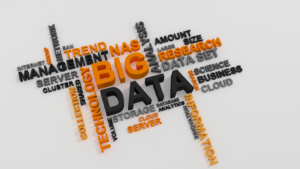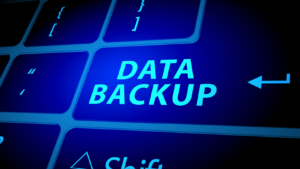In today’s digital age, data is often heralded as the new oil, driving innovation and economic growth. But as businesses and individuals collect vast amounts of data, questions around what do most copyright laws say concerning the ownership of collected data become increasingly complex. Understanding what copyright laws say about the ownership of collected data is crucial for navigating the legal landscape and protecting one’s interests.
Copyright laws traditionally focus on protecting creative works, like literature and art, rather than raw data. However, as data collection becomes more sophisticated, the lines between creative content and data blur, leading to legal gray areas. Most copyright laws don’t directly address data ownership, leaving room for interpretation and debate.
This ambiguity can lead to challenges in determining who truly owns data once it’s collected and processed. As companies and policymakers grapple with these issues, it’s essential to explore what do most copyright laws say concerning the ownership of collected data and how copyright laws are evolving to address the unique challenges posed by data ownership in the digital world.
What do Most Copyright Laws say Concerning The Ownership of Collected Data

Copyright laws primarily safeguard original works of authorship, including literary, musical, and artistic creations. the question what do most copyright laws say concerning the ownership of collected data has been often asked. These laws grant creators exclusive rights to reproduce and distribute their works. However, raw data, unlike creative works, typically lacks originality, which limits its protection under traditional copyright frameworks.
Digital landscapes complicate copyright application. In these environments, data collection processes often involve aggregation and processing, contributing to innovative outputs. While copyright can apply to the creative derivatives resulting from data manipulation, the raw data itself generally remains outside its domain.
Ownership Of Collected Data
Collected data remains a central focus in discussions about copyright laws and ownership rights. Most traditional copyright laws do not directly address the ownership of such data, leaving uncertainty in its legal status.
Defining Collected Data
Collected data refers to raw information gathered through various means like surveys, sensors, or tracking tools. This data can include numerical values, text entries, or timestamps that capture specific details. It’s typically unprocessed, lacking originality, which complicates its protection under current copyright frameworks.
Key Principles Of Ownership

Ownership principles for collected data hinge on factors like creation, collection process, and applied agreements. When organizations gather data, they often claim ownership of the collected dataset. The legal basis for ownership might rely on contractual agreements or data licenses defining rights and obligations.
When originality arises from data processing or combination, copyright may protect the resulting work, but not the raw data. Ambiguities persist as policymakers and legal experts strive to balance protections with innovation needs.
Global Overview Of Copyright Laws
Most copyright laws worldwide state that collected data, in its raw form, usually lacks the originality necessary for copyright protection. Copyright protection typically requires a creative expression.
United States
In the United States, the Copyright Act protects original works of authorship fixed in a tangible medium but excludes facts and ideas from protection. Data in its raw form, often similar to facts, remains unprotected. Derivative works resulting from data manipulation may qualify for copyright if they have original authorship.
European Union
The European Union approaches copyright with the EU Copyright Directive, aiming for harmonization across member states. The principle for data remains consistent—raw data without unique expression isn’t protected by copyright. However, databases that display originality in selection or arrangement may receive protection under the Database Directive.
Other Jurisdictions

Jurisdictions outside the US and EU, such as Australia and Canada, typically adhere to the principle that raw data is factual and unprotectable under copyright. Protection may apply when data has undergone transformation into a creative or original format. Laws adjust to balance data ownership and innovation, reflecting global trends.
Legal challenges concerning data ownership arise due to the gap in copyright protection for raw data, impacting how entities access and control data. These challenges also extend to privacy issues in data handling.

